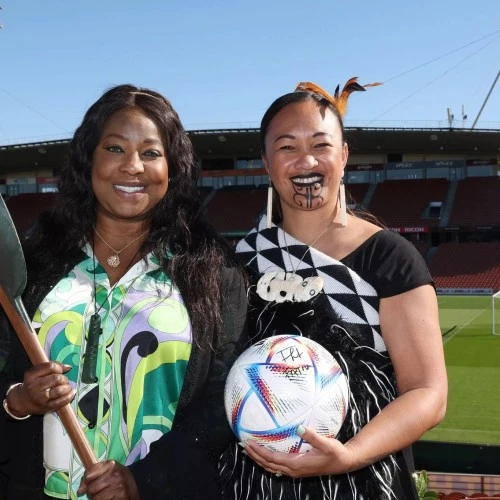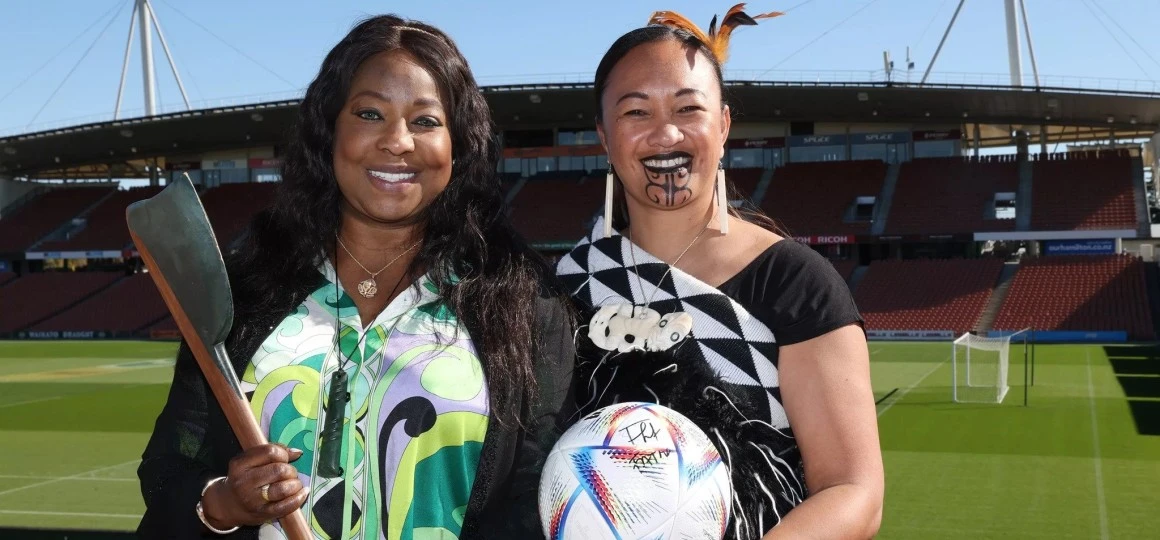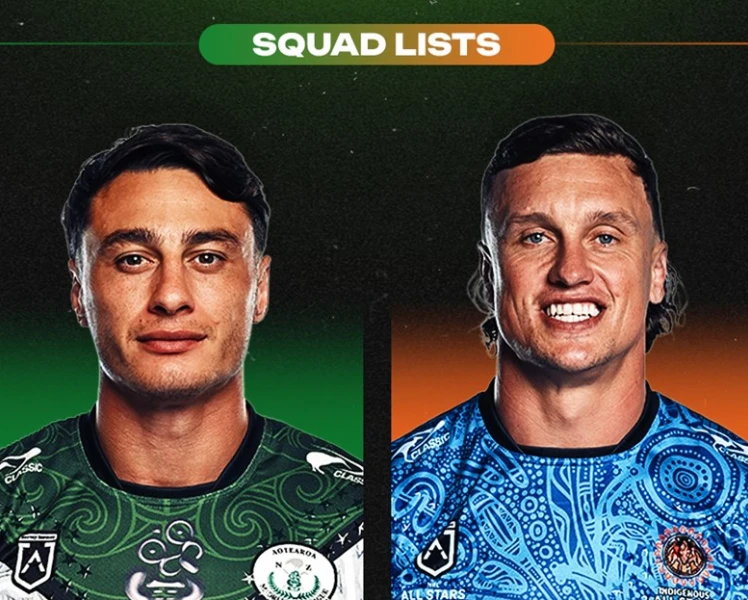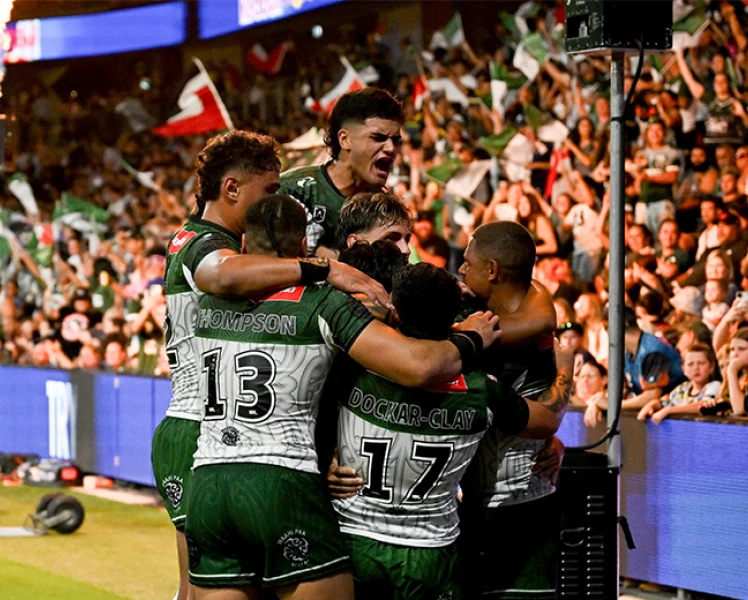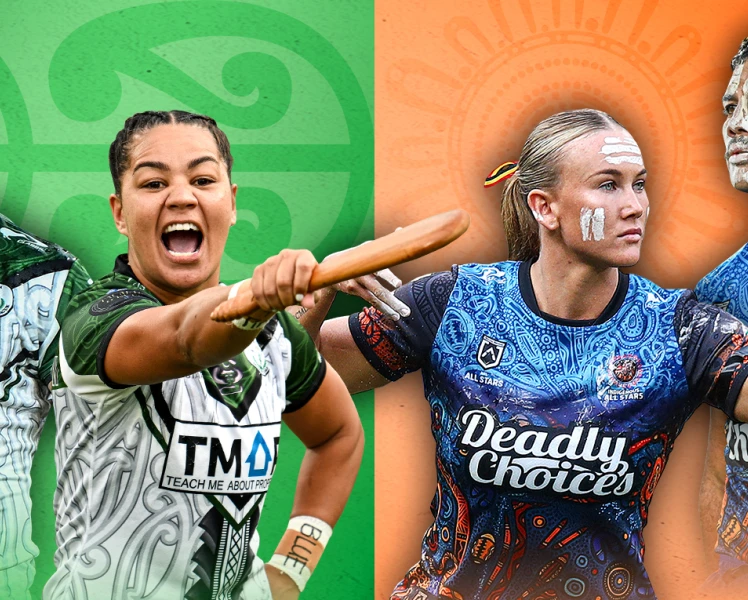Hamilton/Kirikiriroa was the final city in New Zealand to be visited by a FIFA delegation, as part of a mission to meet with key stakeholders in sport and government in each of the host cities of next year’s FIFA Women’s World Cup™, jointly hosted by Australia and New Zealand.
The visit to Hamilton, which is in the heart of the Waikato region and New Zealand’s fourth largest city, began at the entrance to Waikato Stadium with a Wero from the local Iwi. The Wero is a challenge whereby the local Iwi or tribe, decipher from the reactions of the challenged visitors if they are coming to fight or in peace.
Once the FIFA delegation, led by Secretary General Fatma Samoura had proved to the Iwi its peaceful intentions, a Karanga rang out throughout the 25,111 capacity stadium. The Karanga is an exchange of calls between the Iwi present that forms part of the Pōwhiri, a Māori welcoming ceremony.
Following the Karanga, a Pōwhiri, which involves singing and dancing to welcome guests, got underway before the FIFA Secretary General was honoured by the Iwi Waikato Tainui with a Pounamu - a green stone featuring Māori carving - in a gesture of welcome, friendship and peace.
Following the moving Pōwhiri, a tour of Waikato Stadium, host of five FIFA Women’s World Cup group matches got underway. Waikato Stadium has a proud history that spans 100 years and underwent a $1.3M project that saw a state-of-the-art Desso Hybrid turf installed in 2019. This system includes high performance artificial fibres “stitched” into a binding layer with rye grass sown into the subsoil that delivers a reinforced natural grass playing surface. The field will undergo a renovation maintenance programme towards the end of 2022 in preparation for the FIFA Women’s World Cup.
The tournament will provide a lasting legacy for the stadium, which includes renovation of the changing rooms to include individual lockers for players and providing female friendly sanitary facilities. This legacy will also extend to the training sites where changing rooms are being upgraded to cater for female athletes.
Meaningful and long lasting sustainability practices are a priority for the stadium and it has implemented several measures in this regard including: water flow restrictors on all taps and showers, building management systems to manage power and energy consumption, halogen lighting being replaced with Led lighting, free CBD bus for public ticketed events and turf and fields irrigated at night to ensure less water evaporation from the sun.
Māori culture and practices play an important role at Waikato Stadium. The 15m tall carved Whatanoa Gateway commemorates the ancient traditions and landmarks of the Waikato Tainui (people of Tainui) and particularly the Ngati Wairere hapu (tribe who lived upon the lands of what is) upon whose traditional lands Waikato Stadium is built.
The Whatanoa Gateway symbolises passion, determination and dedication of ancient Maori warriors and modern day sports players. The Whatanoa Gateway links the past to the future, and welcomes all to the Waikato Stadium, the city of Hamilton / Kirikiriroa and the Waikato province.
Following a tour of the stadium facilities the delegation - FIFA Secretary General Fatma Samoura, Joanna Wood President Football New Zealand, FIFA Council member and OFC Council member, Dave Beeche CEO of the FIFA Women’s World Cup 2023 in Australia and New Zealand, Rhiannon Martin Head of FIFA Women’s World Cup Project 2023 and Jane Patterson Chief Operating Officer for FIFA Women’s World Cup 2023 in New Zealand - met with Mayor of Hamilton, Paula Southgate.
Talks focused on the city’s excitement around the competition and the positive message that it and its slogan - Beyond Greatness - brings particularly to women in the Southern Hemisphere. City representatives stressed their love of football and that the anticipation ahead of the tournament among Hamiltonians was reaching a high, with many keen to showcase the deep and rich cultural history of the Waikato region to visiting teams and fans.
Speaking at the conclusion of her visit to Hamilton Fatma Samoura said: “This visit was extremely moving as the Iwi of Waikato welcomed me with such warmth to the city of rivers, Hamilton. It was truly a great honour to be part of their cultural tradition and the memory of the Pōwhiri I received will remain with me always. Never before has a FIFA Women’s World Cup had such a rich cultural backdrop.”

